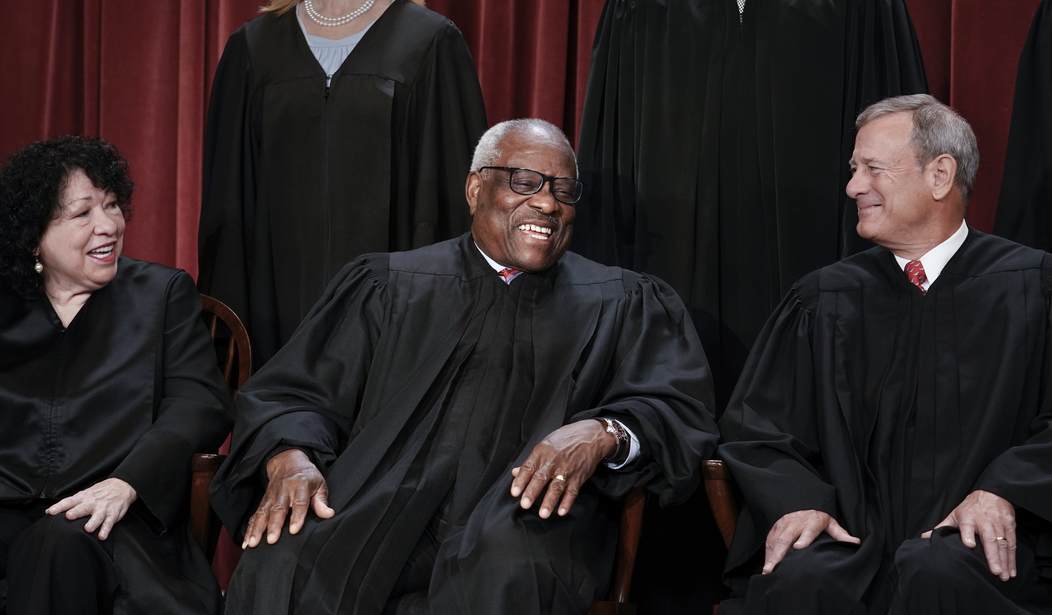Today, the Supreme Court will hear arguments in Murthy v. Missouri, one of several cases brought against federal officials by multiple states seeking to block them from using their influence over social media companies to suppress primarily conservative content and opinions. Lower courts have previously sided with the states in some of these cases, but the Supremes placed those rulings on hold until they had a chance to review the matter themselves. This is a complicated case with many moving parts, but it further highlights the way that social media has evolved to become the modern version of the public square in only a couple of decades. The case also raises questions regarding how much control private sector tech companies can or should exert when it comes to content appearing on their own sites. (Associated Press)
In a busy term that could set standards for free speech in the digital age, the Supreme Court is taking up a dispute Monday between Republican-led states and the Biden administration over how far the federal government can go to combat controversial social media posts on topics like COVID-19 and election security.
The justices are hearing arguments in a lawsuit filed by Louisiana, Missouri and other parties accusing administration officials of leaning on the social media platforms to unconstitutionally squelch conservative points of view. Lower courts have sided with the states, but the Supreme Court blocked those rulings while it considers the issue.
The high court is in the midst of a term heavy with social media issues. On Friday, the court laid out standards for when public officials can block their social media followers.
The Biden administration continues to push back against this case, claiming that it seeks to ban activity that hasn't taken place. They have told the courts that the states have yet to produce any evidence showing that the federal government sought to push the tech companies to suppress any "controversial" content. Anyone who has read the Twitter Files might heartily disagree, but the courts are being forced to wrestle with the appropriate definition of "influence" in such situations. The administration is quick to point out that the government has never been found to have imposed any sort of penalties or punishment on companies that declined to remove content that was deemed "controversial," particularly posts related to the COVID vaccines or the integrity of the 2020 elections.
Of the many problems with this case, perhaps the largest is the fact that the social media companies are not technically capable of engaging in censorship. Only the government can be guilty of that because they are forbidden from doing so by the Constitution. Even if the plaintiffs prevail, the government has plenty of other ways of indirectly communicating its desires regarding such content to social media platforms. They can release statements to the press about the dangers of various types of "misinformation." And most of the platforms (with the exception of Twitter in some cases) are more than happy to start deleting or suppressing posts in response.
In reality, the platforms shouldn't be squelching any content except that which engages in or promotes crimes. This would be true of posts promoting physical violence, the abuse of children, the distribution of child pornography, offers to sell illegal drugs and other acts of a similar nature. Everything else you are likely to see online is simply a series of opinions of varying quality. It shouldn't be a crime to post your opinion even if you are wildly wrong. The government typically doesn't mind if you're saying something incorrect, provided you are not taking a position contrary to their current policies. You can still find plenty of people claiming that the Earth is flat and they don't have their accounts suspended. That's because the White House hasn't bothered to take up an official position on the shape of the planet. The efficacy of the COVID vaccines is another matter, however.
In a separate decision, the Supreme Court sent a case back to the lower courts where plaintiffs were seeking to prevent an elected official's ability to block followers on social media. They established a pair of tests for such challenges involving questions of whether the officials were truly empowered to speak on behalf of the government. If they are, then their official government speech cannot be blocked from other users. That situation doesn't seem to be directly related to the censorship question above, however, so we probably shouldn't read too much into it.









Join the conversation as a VIP Member